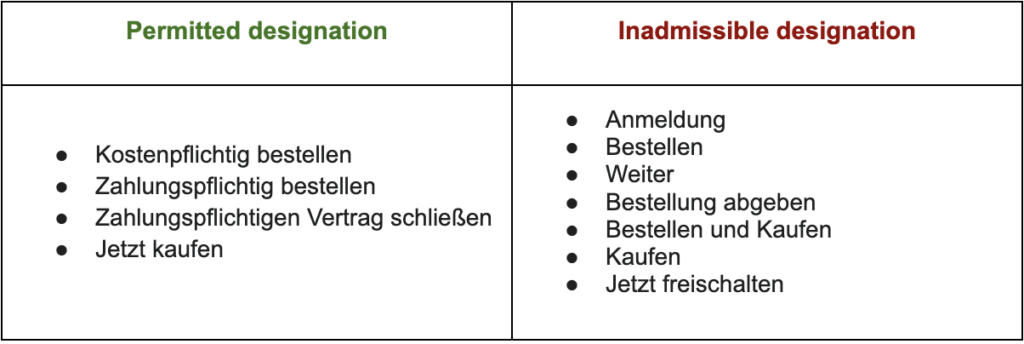Business Expansion: Mastering Website Localization in Germany
16.05.2024With a gross domestic product of around 4.12 trillion euros…
Localising a website refers to the process of adapting web content to the cultural, linguistic and other specific requirements of a target audience or market. This includes translations, values and trends, legal requirements and local online shopping habits. The aim is to improve the accessibility, relevance and usability of the website for users in a specific geographical or cultural context.
In some cases, companies go a step further and adapt their brand name and identity to enter a new market. Here are a few examples where brand localisation made sense:
Before launching its fuzetea iced tea, the Coca-Cola Group tested how a focus group would react to the name. The result: fusetea. In colloquial Swiss German, "Fuz" or "Futz" is used as an insult. In order to prevent problems with the product launch, they paid a lot for the renaming.

Before expanding into the Italian market, Dr. Oetker was concerned that the frozen pizza would not be very successful if it sold pizza in Italy under a German name. The brand name was therefore changed (to Cameo), making it a great success in the Italian market.
We are organizing a webinar focused on maximizing outreach in the DACH region.
Learn more about website localization below:
The well-known Mr. Clean brand of the US company Procter & Gamble was translated into local languages, such as Don Limpio (Spain), Mastro Lindo (Italy) or Monsieur Propre (France), in order to better adapt the brand name to the culture.
Don't worry! To expand into a foreign market with your own brand, it is not absolutely necessary, and often not even sensible, to change the brand name or logo. There would be some costs involved and perhaps the brand would still not achieve the desired success. Nevertheless, there are plenty of other localization aspects that need to be considered, especially when expanding online. Let's take a look at the most important ones...
The relevance of localizing a website for a foreign market cannot be denied. But how do you get started? Which priorities should be set and where do companies get the information to incorporate it into their German website?
The most important aspects of website localization are listed below, along with helpful tips on how to successfully localize your own website.
Basically, the online shopping habits of the local target group should be analyzed and implemented in order to understand how to make the shopping experience as pleasant as possible. One of the most common reasons for abandoning the purchase process is that the preferred payment method is not offered. This results in losses that are easy to avoid.
Example: Payment methods in Germany
PayPal is almost mandatory as a payment method for online stores in Germany and is the most popular payment method. Germans appreciate the security and data protection, as their own financial data is not disclosed and payments are quick and easy.
The purchase on account method is also popular, i.e. buy now pay later, users receive the goods first and can only make the payment later. Many payment services, such as Klarna or PayPal, offer these services. This payment method is advantageous for customers as they are protected against fraud and only pay for the goods once they have arrived. For businesses, there is a risk of non-payment, but a credit check can be carried out automatically before the purchase is completed to protect merchants.
In general, between 3 and 5 different payment methods should be offered, in the best case:
In addition to the payment methods, shipping methods such as home delivery, delivery to a packing station or collection via click and collect are very individual habits that should be addressed in order to convince users to complete the purchasing process.
Do you know "Top E-commerce Segments in Germany?
Trust is one of the most important conversion factors. Users are cautious on the internet and will only place orders if they are convinced of the seriousness of the online store. In addition to the general appearance and linguistic correctness, there are various tools to gain the trust of users.
Online store seal
To confirm that an e-shop or website is credible, customers look at the trust signals, i.e. reviews, recommendations and seals of approval. Online stores with a seal of approval guarantee security, availability and confidence that ordered parcels will arrive without any problems. There are a number of trust seals for online stores in Germany, the best known and most important of which is Trusted Shops.
Trusted Shops offers various services and benefits:
There are EU-wide requirements for online stores that must be complied with. However, different countries may have additional requirements that can be somewhat more specific.
One example from Germany is the so-called button solution, which means that the buttons that complete the order process can only have certain names:

If the name of the payment button differs from the permitted name, no legally valid contract is concluded. This gives the customer an unlimited right of return.
If the name of the payment button differs from the permitted name, NO LEGALY VALID contract is concluded.
This gives the customer an unlimited right of return.
According to the law, providers of online stores must provide a provider identification, also known as an imprint. In addition, it must be accessible with one click from every page of the website and contain certain information:
In special cases, further information must be listed.
If an online store does not provide an imprint, a fine of up to €50,000 can be imposed and it is also a breach of competition law.
In order to comply with these and other legal requirements, you should seek professional advice to avoid high fines.
When translating a website, it is easy for errors to creep in. Be it incorrect expressions or direct translations that do not make sense in the context of the products. It is even common for entire sections to be translated into the wrong language. Various examples from past analyses are presented below.
The example shows a newsletter registration form. It is first used as a first-person (personal address) and then as a last person (formal address). For native speakers, this looks strange at first glance. It is better to decide from the outset on a type of communication - formal or personal.
Another example is an online store for clothing that wants to expand into Germany:
There is a wild mix of English and German on the product page. To gain the trust of potential customers, it should be possible to complete the ordering process without such errors.
Instead of "just" translating the content of the website, the focus is on retaining the meaning of the content. Every language has its own peculiarities. In German, English terms are often used that have migrated into our everyday language usage. When translating an online store for household goods, an "organizer" quickly becomes an "organizer" (for events) if no one checks the translations for the actual meaning.
Cultural differences cannot be dismissed out of hand. Anyone who has ever gone on vacation across national borders will have quickly realized how big the differences can be even within small distances. This also applies to online retail. Be it local holidays, a compass of values or the way of communication. There are many peculiarities that need to be taken into account. Of course, you shouldn't generalize, but there are many important characteristics, such as online shopping behaviour, that need to be addressed individually in different countries.
Data protection is a big issue for Germans. After Germany produced two political systems in which surveillance of its own population played a major role in control, manipulation and oppression, the Third Reich and the German Democratic Republic, data protection is perceived as very important by the population. This becomes apparent when you look at the spread of Google Street View in Europe.
Online stores must respect this desire for privacy and adapt their settings accordingly.
This is just one of many examples of the German mentality. What may seem strange from the outside is the key to success in the German market.
So: What does localization mean? In summary, it can be said that the localization of a website requires a lot of preparation. It is helpful to work with native speakers and experts who know the country, the mentality and the peculiarities of the language. If you want to expand your company abroad and localize your website, you've come to the right place. eVisions employs native speakers from Central and Eastern European countries who are the best contacts for their respective countries.
Interested? Then get in touch with us!
Want to learn more about localizing a website for the German market ?
Don't miss our webinar.

With a gross domestic product of around 4.12 trillion euros…